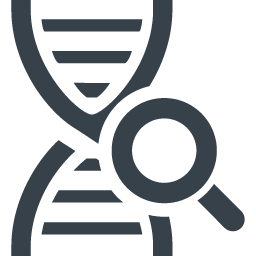 FMR3 gene related symptoms and diseases
FMR3 gene related symptoms and diseases
All the information presented here about the FMR3 gene and its related diseases, symptoms, and test panels has been aggregated from the following public sources: HGNC,ORPHANET,NCBIGENE, Mendelian Rare Disease Search Engine.
Top 5 symptoms and clinical features associated to FMR3 gene
| Symptoms // Phenotype | % Cases |
|---|---|
| Intellectual disability | Very Common - Between 80% and 100% cases |
| Aggressive behavior | Very Common - Between 80% and 100% cases |
| Agitation | Very Common - Between 80% and 100% cases |
| Impulsivity | Very Common - Between 80% and 100% cases |
| Obsessive-compulsive behavior | Very Common - Between 80% and 100% cases |
Other less frequent symptoms and clinical features
Patients with FMR3 gene alterations may also develop some of the following symptoms and phenotypes:Commonly - More than 50% cases
- Prominent nasal bridge
- Attention deficit hyperactivity disorder
- Autistic behavior
- Intellectual disability, moderate
- Hyperactivity
- Global developmental delay
- Abnormality of metabolism/homeostasis
- Intellectual disability, mild
And 6 more phenotypes, you can get all of them using our tools for rare diseases.
Rare diseases associated to FMR3 gene
Here you will find a list of rare diseases related to the FMR3. You can also use our tool to get a more accurate diagnosis based on your current symptoms.
FRAXE INTELLECTUAL DISABILITY
Alternate names
FRAXE INTELLECTUAL DISABILITY Is also known as fraxe mental retardation syndrome, intellectual disability associated with fragile site fraxe
Description
FRAXE is a form of nonsyndromic X-linked mental retardation (NS-XLMR) characterized by mild intellectual deficit. FRAXE is the most common form of NS-XLMR.
Most common symptoms of FRAXE INTELLECTUAL DISABILITY
- Intellectual disability
- Global developmental delay
- Short stature
- Microcephaly
- Delayed speech and language development
More info about FRAXE INTELLECTUAL DISABILITY
Search interest in FMR3
If you liked this article maybe you will also find interesting the following in-depth articles about other rare diseases, like LEFTY2 SIK1 CXorf36 PLCZ1 ABAT TGIF1